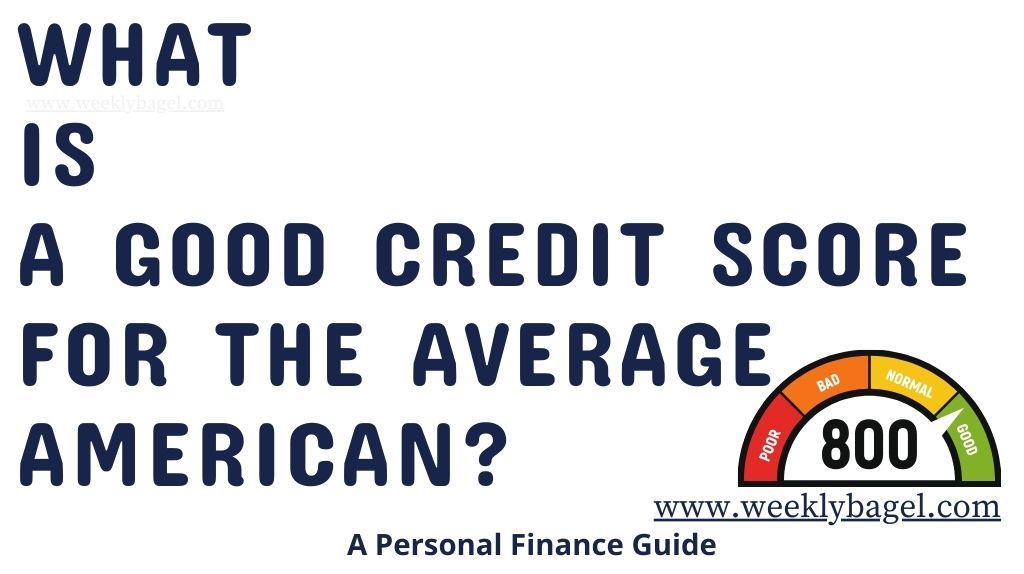
Without a good credit score, it is hard to qualify for loans in the States. This is particularly when it has to do with a major purchase which costs thousands of dollars. Unless you are willing to pay out of pocket for big purchases, financing big purchases through loans is the way to go. A good credit score for the average American working class adult means having access to good creature comforts.
I know it sounds unfortunate, but you and I know access to some creature comforts is not possible on some average working class salaries. Creature comforts like car, an apartment, house or even property purchase needs you to have a great credit score in order to qualify for a loan finance to afford them. Am I right?
In the United States of America, credit is king. Your ability to repay a debt is rated with a number called a credit score. The credit score is gotten from an accumulation of the adult’s credit history over a period of time. I discussed this on what you need to know about credit and credit score. You can read it to get a glimpse of how the system work, otherwise the summary below explains the five levels of credit scores.
What Are the Five Levels Of Credit Scores?
In the United States, your credit worthiness is rated into five levels. These five levels are summarized below:
| Credit Score | Ratings |
|---|---|
| 300-579 | Poor |
| 580-669 | Fair |
| 670-739 | Good |
| 740-799 | Very Good |
| 800-850 | Excellent |
As a working class adult, good financial institutions will considered you for a loan when your credit rating is from 670 upwards. It is considered to be good for any borrower. If you could get into the excellent ratings, that is even better.
The maximum credit score limit is 850. This is the highest credit score you can achieve. You would have to be excellent in repaying debts to get up to this point.
Before I elaborate more on this, the American credit system is divided into two. You have the FICO credit system and the Vantage credit system. Banks use FICO for financial transactions pertaining to loans, while businesses like rentals usually access the Vantage system.
What Is the Highest FICO Score And Vantage Score?
The highest FICO score you can get is 850. That is considered the perfect FICO score. How rare is an 850 FICO score?
For the average American working class adult, I would say it is very hard to get or maintained the highest FICO score. But, what matters is being within FICO score ratings which are favorable to you as a borrower.
If you want to maintain an exceptional FICO score though, you have to stay within 800+ range. With high FICO score like that, you can easily get loans as long as you have a steady income flow. Now, here is what to know about Vantage score.
The highest possible Vantage score is 850 too. Vantage credit score model uses the same metrics as the FICO. Personally, I prefer using the FICO to check my score since most financial institutions use it for credit inquiry.
What Does High Credit Score On the Five Levels Of Credit Scores Mean For You?
A high credit score means low interest rate, when you ask a bank to finance your purchases. A high credit score is considered a good credit score for financing a car. Not that you will not qualify for a loan within the fair credit ratings of 580 to 669, but the loan will be given to you with a higher than average interest rate. This is especially, when there are blemishes on your credit report.
You can read where to check your credit score for free for how to go about seeing your credit score and history.
A good credit score starts with 670 credit ratings. With 670 credit score, you are considered to be risk free. If your credit score is above 740 and in the 800’s, that is even better. Now, does your credit score represent you as a person?
No, your credit score does not represent you as a person. You may still be a risk factor. This is especially without a job or a steady monthly income flow. Also, having a habit of owing debts and a history of missed debt payments make you a risk. Yes- these are considered by banks when they decide to finance a purchase for you.
Sometimes, errors in credit reports could cause your credit score to fall. In case of errors causing your credit score to fall, you could dispute errors on your credit report. Having said that, here is what to know about the average American credit score by age currently and where you should strive to be.
What Is A Good Credit Score By Age?
According to Experian, one of the three biggest credit bureaus in the US, the 2022 and 2023 data below represents the average American credit score by age:
| Age | 2022 Data | 2023 Data |
|---|---|---|
| 78+ years old | 760 | 760 |
| 589 to 77 years old | 743 | 745 |
| 43 to 58 years old | 707 | 709 |
| 27 to 42 years old | 687 | 690 |
| 18 to 26 years old | 679 | 680 |
As you can see from the above table, credit score for the average American Gen Z’s and Millennials were in the 600’s. I am not surprised. This is because the more one ages, the better grip one has on his or her finances. Simply put, you pay your bills on time and become responsible with your debts. Would you say the above data is a reflection of this fact?
I would think so.
As young working class adults, we are easily influenced to spend more than we can afford. It could be from maxing out our credit cards to missing a monthly debt payment. The average working class adult earning power is not strong enough to offset continuous debt accumulation. Hence, why our credit score is easily affected negatively.
Additionally, adult Gen Zs and early Millennials may not have much of a credit history. This is given the fact they have not built any yet. As a result, their credit scores are not expected to be good. But, do that mean you cannot have a respectable credit score?
No. You do not necessarily have to be confined to these average credit score by age. Your credit score depends on your credit history and credit building ability. You can read Building Credit For the First Time to know how you could get a good credit score.
What Would Drop A Credit Score the Most?
There are a number of things damaging to a credit score. The largest impact on your credit score is missing your monthly payments to existing debts. If you read What Ruins Your Credit Score the Most, I discussed how debt has a huge impact on your credit score. This is whether you are paying off a debt or accumulating one.
Debts have a big impact on your credit score, because it is how your credit history is built. When you accumulate a debt or pay it back, it is recorded as part of your credit history. It is not just your ability to pay back debt, which could affect your credit. Your income-to-debt ratio can also influence it negatively.
Here is a good example below.
Maxing out a credit card could be seen as negative event on your credit report. Its impact goes beyond just affecting your credit score. It increases interest rates, which may make it hard for you to pay back your debt. Therefore, decreasing your credit score further.
As you can see, you need to get at least 670 to qualify for loans with a reasonable interest rate. You have to be on top of your debts to achieve this. Not only paying debts on time, but making financial decisions which are not reported negatively on your credit report. It is how you set yourself up for financial success as a young working class adult in the United States.




 How Your Employer Tuition Reimbursement Could Smash Your Debts
How Your Employer Tuition Reimbursement Could Smash Your Debts